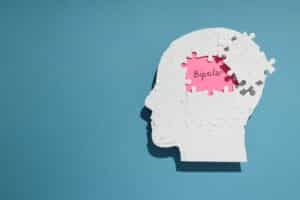It is natural for our mental health to fluctuate from time to time. The ups and downs of life often inform our behavior and may cause us to feel hopeless. These are widespread sentiments amongst various communities. If you currently find yourself in a lonely headspace, understand that you are not alone. There are many contributing factors to the fluctuations in our mental health as human beings. These factors may include environment, physical fitness, or even the time of year. According to a Clinical Psychology Review study, an estimated 20% of reoccurring depression in adults follows a seasonal pattern.
How to Combat Poor Mental Health
It is important to remember that many factors of poor mental health may seem out of your control. Don’t beat yourself up for this. It is entirely normal to have moments when you feel weak or inadequate.
As difficult as it may be, try not to become overwhelmed by these emotions. Be present with yourself, your thoughts, and the actions that follow those thoughts. Try to take mental notes of the regimens you find yourself in when your mental state is not at its best. When you become familiar with these patterns, sustaining your quality of life can become more manageable, even during trying times. Here are a few indicators of declining mental health:
- Over or under eating
- Loss of appetite
- Disrupted sleep patterns
- Drug or alcohol abuse
- Reclusiveness or isolation
- Moodiness
- Loss of enjoyment in prior pleasures
- Apathy
Recognizing the impact of the factors mentioned above gives us the control to make appropriate changes. Most of the listed points are either coping mechanisms for poor mental health or results thereof. Irrespective, all such behavior exhibits a loss of self-control over one’s life.
Although the aspects of your mental health are integral to your life, they don’t need to monopolize your life. You can make intentional choices to combat what you may be experiencing.
Talk to Friends and Loved Ones
It can sometimes seem tempting to try to process our emotions alone. After all, it spares us from having potentially awkward conversations about the position we currently find ourselves in. However, talking through our issues with trusted friends and loved ones is a better alternative than isolation.
Community is an essential part of healing and well-being. In speaking to a trusted friend, you may find that you are not on an island after all, and you may also find that those around you share similar internal struggles.
Open discussions about what you feel with others are a great way to improve mental health gradually. Over time, your emotions may become more evident as you learn to speak more freely about them and process them.
Physical Activity
There is a direct correlation between our physical activity and mental health. As previously mentioned, one significant indicator of a mental health decline would be excess sleep. Our desire to escape reality often manifests in the presumed need for more rest. Inactivity, however, is a significant contributor to this decline. It may be helpful to find physical activities that you enjoy.
One of the most critical aspects of physicality is that it can be done in a group or alone. For instance, if you need to clear your mind, you may find some clarity on a solo hike or jog. On the other hand, if you feel social and want some company, perhaps joining a community sports organization may be best for you. Either way, by practicing physical health, you are contributing to the greater good of your mental health.
Healthy Diet
Our nutrition informs a great deal of how we navigate the world. Our energy, endurance, and sustainability are all dictated by what we choose to eat. According to Frontiers In Public Health, poor nutrition and mental health intertwine. You may find joy in experimenting with new foods. Maybe try something slightly out of your comfort zone. Or, perhaps a new recipe may bring you some delight.
Actively implementing foods that contribute to the longevity of your energy and brainpower may gradually pull you out of dark mental head space. It may seem trivial, but there is potential for you to find joy in an aspect of life you otherwise may not have.
Improving Your Mental Health Does Not Happen Overnight
You may have an off day, only to find that the very next day, you feel much more like yourself. However, as a person who goes through the flux, it is possible to feel very low for days or weeks. Try not to be too discouraged or harsh on yourself. At times, improving mental health may be a gradual process. It may be difficult at first, but be patient with yourself.
There will be ups and downs in trying to get out of a funk. However, the self-discovery and achievement in your wellness will be worth it in the end.
At Southern California Sunrise Recovery Center, we understand that navigating challenges concerning a mental health disorder may be challenging, but it is never something that you have to confront alone. Resources, community, and treatment programs will inevitably help you feel less isolated. If you find yourself in a place of solitude, desperation, or overall poor mental health, there is assistance for you.
Although it may be tempting to try to go it alone, understand that self-diagnosis and misdiagnosis are issues faced by many struggling to manage their mental health. Your capability to rise through the difficulty of this time is within you. It will allow you to process your thoughts alongside a companion. You can be encouraged and affirmed while learning to trust yourself and others again. To learn more about our programs, call us today at (714) 942-4143.







